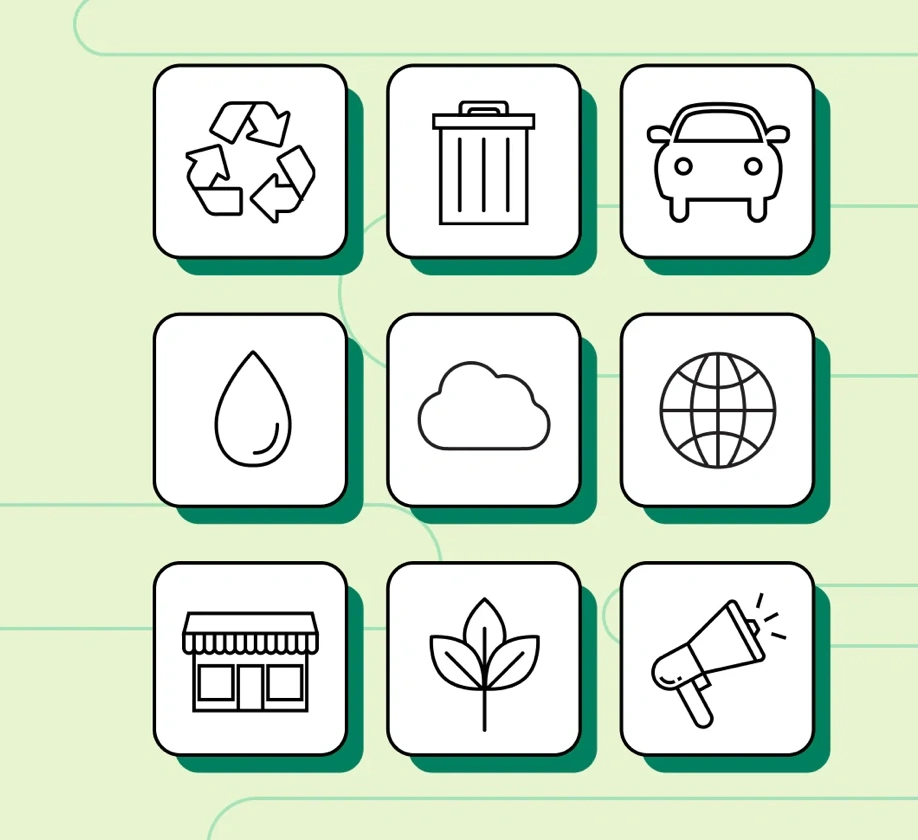table of contents
Upcoming trends and strategies for 2026!
1. Social Media Marketing
- Platform Selection: Choose platforms where your target audience is most active. For example, Instagram and TikTok are great for younger demographics and visually-driven content, while LinkedIn suits B2B marketing.
- Content Types: Use a mix of posts such as educational content, behind-the-scenes looks, customer stories, polls, and live sessions.
- Engagement: Respond to comments, messages, and mentions promptly to build relationships and foster community.
- Paid Ads: Use detailed audience targeting (age, location, interests) for better ad performance. Experiment with different ad formats like carousel ads, stories ads, and video ads.
- Analytics: Track engagement rates, follower growth, and click-throughs to measure success and optimize.
2. Search Engine Optimization (SEO)
- Keyword Research: Use tools like Google Keyword Planner, Ahrefs, or SEMrush to identify keywords your potential customers are searching for.
- On-Page SEO: Optimize meta titles, descriptions, headers (H1, H2), and content with target keywords. Ensure your images have alt tags.
- Technical SEO: Improve website loading speed, secure your site with HTTPS, fix broken links, and create an XML sitemap.
- Local SEO: List your business on Google My Business, Yelp, and local directories. Encourage customers to leave reviews and provide accurate NAP (Name, Address, Phone) info.
- Content SEO: Publish blog posts answering common questions, explaining your services/products, or sharing industry news to drive organic traffic.
3. Content Marketing
- Buyer Persona: Develop detailed buyer personas to create content tailored to their challenges and interests.
- Content Types: Blog posts, eBooks, whitepapers, case studies, videos, podcasts, and webinars.
- Content Calendar: Plan your content around relevant industry events, seasons, or product launches.
- Storytelling: Use narratives that resonate emotionally with your audience for better engagement.
- SEO Integration: Use content to target SEO keywords while providing valuable information, not just selling.
4. Email Marketing
- List Building: Use lead magnets like free guides, discounts, or webinars to encourage sign-ups.
- Segmentation: Divide your list based on demographics, purchase history, or engagement behavior to send more relevant content.
- Automation: Set up drip campaigns, welcome sequences, and cart abandonment emails.
- Personalization: Use the recipient’s name, recommend products based on past purchases, and tailor offers to their preferences.
- Metrics: Track open rates, click-through rates, and conversions to improve future campaigns.
5. Pay-Per-Click Advertising (PPC)
- Platform Choice: Google Ads for search intent-driven traffic; Facebook and Instagram Ads for interest-based targeting.
- Keyword Strategy: Focus on long-tail keywords for lower cost and higher intent.
- Ad Copy: Write clear, compelling headlines and calls to action that address pain points directly.
- Landing Pages: Create dedicated landing pages for your ads to improve conversion rates.
- Budget Management: Start small, test different ads and optimize based on performance.
- Retargeting: Show ads to users who have visited your website but did not convert to increase conversions.
6. Influencer Marketing
- Finding Influencers: Use micro-influencers (1,000-100,000 followers) with high engagement rates related to your niche.
- Collaboration Types: Sponsored posts, product reviews, giveaways, affiliate partnerships.
- Authenticity: Choose influencers who genuinely like your product or service to maintain trust.
- Contracts: Clearly outline deliverables, schedules, and compensation.
- Measurement: Track referral traffic, social engagement, and sales generated from influencer campaigns.
7. Online Reviews and Reputation Management
- Review Solicitation: Politely ask happy customers via email, receipts, or follow-up calls to leave reviews.
- Monitoring: Use tools like Google Alerts or reputation management software to stay on top of new reviews.
- Response Strategy: Always thank positive reviewers and professionally address any complaints or negative feedback.
- Trust Badges: Showcase verified reviews and testimonials on your website and social media.
- Crisis Management: Have a plan ready to handle negative PR or review backlash quickly.
8. Video Marketing
- Video Types: Tutorials, product demonstrations, customer testimonials, behind-the-scenes, FAQs.
- Platform Use: YouTube for broader reach, Instagram Reels/TikTok for short-form, engaging clips.
- Production Value: Videos don’t need to be professionally made; authenticity matters more, but ensure clear audio and visuals.
- Call to Action: End videos with clear CTAs like visiting your site, subscribing, or making a purchase.
- SEO: Optimize video titles, descriptions, and tags with keywords.
- Engagement: Encourage comments, shares, and likes to increase visibility.
9. Affiliate Marketing
- Recruit Affiliates: Reach out to bloggers, content creators, or influencers in your niche who can promote your products.
- Tracking & Management: Use tools or platforms (like ShareASale, Refersion, or your own software) to track referrals and sales.
- Commission Structure: Offer attractive and competitive commissions to motivate affiliates.
- Training: Provide affiliates with promotional materials, product info, and support.
- Compliance: Ensure affiliates follow legal guidelines (disclose affiliate links, honest reviews).
10. Mobile Marketing
- Responsive Design: Ensure your website and emails look great and function well on mobile devices.
- SMS Marketing: Use text messaging for timely promotions, reminders, or alerts with customer consent.
- Mobile Apps: If applicable, develop a business app to increase engagement and loyalty.
- Location-Based Marketing: Use geotargeting to send offers to users near your store.
- Fast Load Times: Optimize site images and code to minimize mobile loading time, improving both user experience and SEO.
- Mobile Payment Options: Simplify checkout with mobile-friendly payment methods like Apple Pay or Google Wallet.
post tags :
app
Apps
Audit
brand
business
Central
Companies
content
Copy
Copywriting
Critical
Customers
data
email marketing
Engines
Ensure
funnel
Growth
keywords
Loading
local
managed
marketing
Mobile
mobile apps
online
online marketing
optimization
organic
personal
practices
privacy
Professional
Provider
ride
Search
Server
services
Speed
strategy
support
Testing
user
Users
website
your ideal recruitment agency



